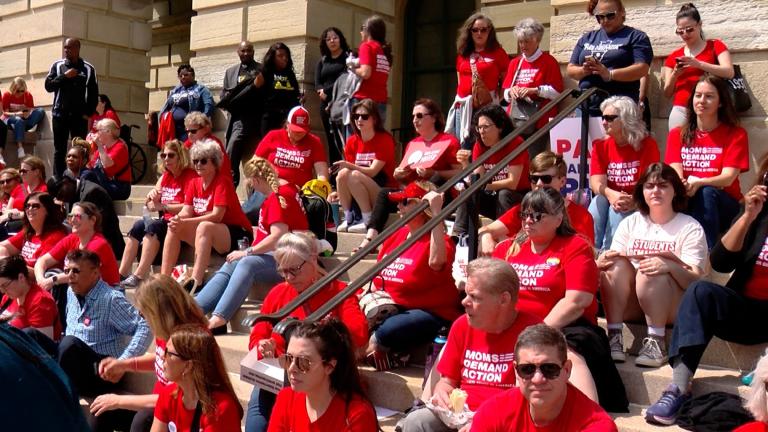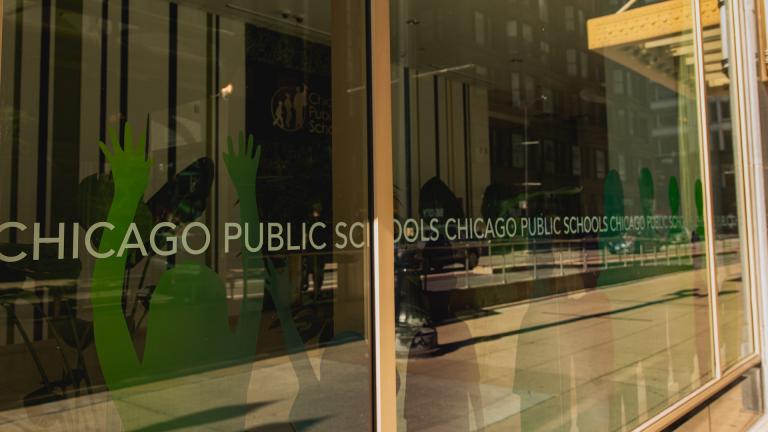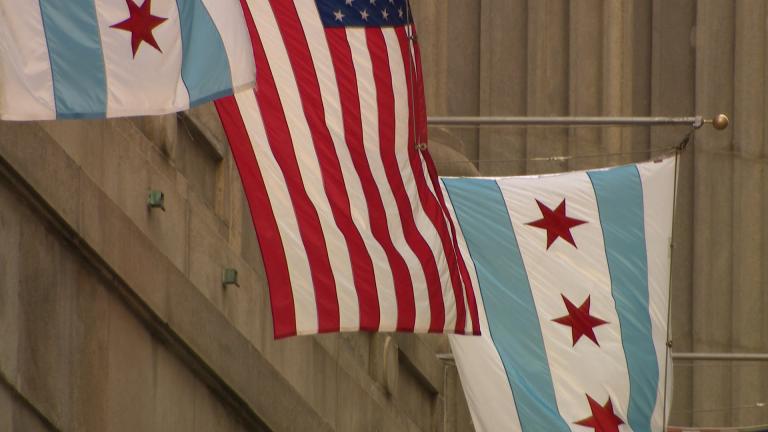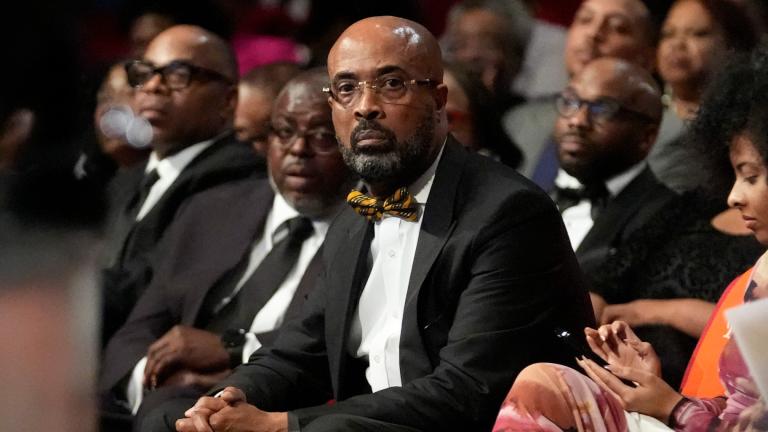The state is facing a multi-billion dollar budget crisis, shrinking tax revenue, a freeze on non-essential spending, a battle over medical marijuana and raising the minimum wage, and a possible pension reform redo. So how will state lawmakers work with Gov. Bruce Rauner on these issues? The governor has said education is one of his top priorities -- but how can the state increase school funding with a massive backlog of unpaid bills and shrinking revenue? We talk with lawmakers from both chambers about their legislative priorities and predictions for the spring legislative session. Joining us are Sen. Kwame Raoul, Sen. Matt Murphy, Rep. Elaine Nekritz, and Rep. Peter Breen.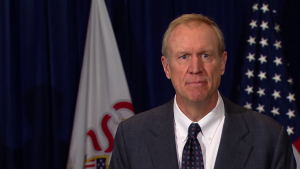
Freeze on Non-essential Spending
During his inaugural speech, Gov. Bruce Rauner mentioned his first action as governor was “to direct every state agency to freeze non-essential spending.”
After being sworn in as governor, Rauner signed an executive order that freezes all state discretionary spending, halts the awarding of contracts and grants, and instructs the sale of surplus state property.
The executive order also requires every executive branch agency to report to the Governor’s Office of Management and Budget every contract that had been awarded or entered into since Nov. 1, 2014, as well as every hiring decision taken by agencies on or after Nov. 1, 2014.
Medical Marijuana
 The Compassionate Use of Medical Cannabis Act passed both houses of the Illinois General Assembly on May 17, 2013 and was signed by then-Gov. Pat Quinn on Aug. 1, 2013. The pilot program took effect on Jan. 1, 2014 and runs through Jan. 1, 2018.
The Compassionate Use of Medical Cannabis Act passed both houses of the Illinois General Assembly on May 17, 2013 and was signed by then-Gov. Pat Quinn on Aug. 1, 2013. The pilot program took effect on Jan. 1, 2014 and runs through Jan. 1, 2018.
The Illinois Department of Agriculture received a total of 159 applications for cultivation centers and will award up to 22 licenses, with one in each Illinois State Police District. The Illinois Department of Financial and Professional Regulation received a total of 214 dispensary applications and will grant up to 60 permits.
During his final days in office, Quinn chose not to issue licenses for state cultivators and dispensaries. Instead, Quinn enacted a series of changes to the medical marijuana law. Measures signed by Quinn on Jan. 12 allow state regulators to impose fines and other penalties on those who violate the medical marijuana law, as well as require medical marijuana growers, patients, and their caregivers to undergo stricter criminal background checks.
Rauner’s administration will now be responsible for awarding licenses. Rauner, who said during the campaign he would’ve vetoed the medical marijuana legislation, said he planned to manage the program correctly and needs to “get immersed in the process and learn exactly the status.” The state’s medical marijuana czar Bob Morgan, a lawyer and coordinator of the Illinois Cannabis Pilot Program, has been retained by the Rauner administration for now.
 Raising the Minimum Wage
Raising the Minimum Wage
Two-thirds of Illinois voters approved a non-binding ballot referendum in the November election calling for an increase in the minimum wage.
Although Pat Quinn lost his re-election bid, he vowed to work toward increasing the state’s minimum wage before Rauner’s inauguration. In December, the Senate approved a measure that would raise the state minimum wage to $11 an hour by 2019. The House adjourned without voting on the measure.
On his final day as governor, Quinn signed an executive order requiring state vendors to pay employees $10 an hour, instead of the current minimum wage of $8.25 an hour.
Quinn’s executive order was reversed by Rauner, who said the executive order along with six others issued by Quinn were not “wholly motivated by serving in the public’s interest.”
During his gubernatorial campaign, Rauner said he favored a minimum wage increase if it were combined with pro-business reforms.
Pension Reform
 In December 2013, then-Gov. Pat Quinn signed legislation reforming Illinois’ pension system, with a June 1, 2014 effective date. The legislation was touted as being able to save the state $160 billion over the next 30 years and fully fund the state’s pension systems. The law reforms the systems by diminishing yearly cost of living raises for higher earners, raising the retirement age, and it guarantees the state makes its full yearly payments.
In December 2013, then-Gov. Pat Quinn signed legislation reforming Illinois’ pension system, with a June 1, 2014 effective date. The legislation was touted as being able to save the state $160 billion over the next 30 years and fully fund the state’s pension systems. The law reforms the systems by diminishing yearly cost of living raises for higher earners, raising the retirement age, and it guarantees the state makes its full yearly payments.
A lawsuit was filed by a coalition of major public employee and teachers unions, claiming the reforms were unconstitutional. In May 2014, Sangamon County Circuit Court Judge John Belz halted the state’s pension reform law until lawsuits brought forth by unions and retirees were resolved. In July 2014, the Illinois Supreme Court ruled that the state’s constitution prevents any diminishment of health care benefits for retired state employees. By November 2014, Sangamon County Circuit Judge John Belz found the pension reform law unconstitutional. The Illinois Supreme Court will hear oral arguments over the pension law in March. While campaigning for governor, Rauner said he supported freezing pensions for current workers and moving them into a separate 401k-style system for future work.



